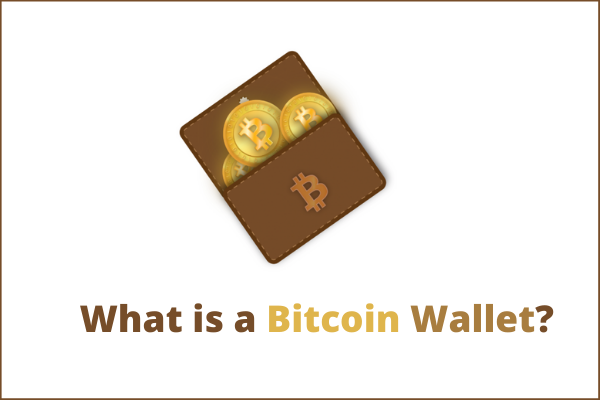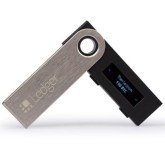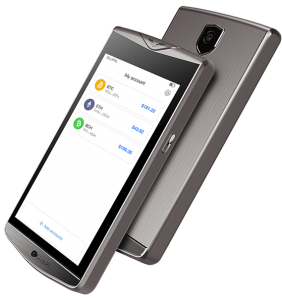This post is a complete overview of Bitcoin Wallets.
It is mandatory that anyone who wants to start dealing with cryptocurrencies must have a wallet.
This is because these are virtual currencies and so one needs to have it stored somewhere; just as you need Gmail, Yahoo, or Hotmail to manage your emails.
Bitcoin wallets are very sensitive and fragile. Therefore, it must be handled with every trace of caution because hey! It’s money we are talking about here.
In this post, I will explain what a Bitcoin wallet is, its functions, and types, and at the end, help you to choose the best wallet for yourself.
Let’s get on with it.
Post Summary
I have broken down this post in the best way that even a 10-year-old will understand.
Here is a list of what I’ll go over:
- What is a Bitcoin Wallet?
- Functions of a Bitcoin Wallet
- Types of Bitcoin Wallet
- How to Secure Your Bitcoin Wallet
- How to Choose the Best Wallet
- Conclusion
Prepare your minds, there’s a lot to be learned here today.
Let’s get started at once!
1. What is a Bitcoin Wallet?

A bitcoin wallet is a program, application, or device that is used to store and manage digital assets transactions.
But in the right sense of it, coins are not stored directly in these wallets.
Rather, it stores relevant information that can be used to access the user’s bitcoin address and validate transactions on the blockchain network.
We can say that the wallets hold the coordinates to the digital assets on the blockchain network. These relevant information are known as the Private and Public Keys.
Private Key
The private key is a long string of numbers and letters that acts as the password to the funds in the wallet. It grants permission to the wallet to send funds to other wallets.
In other words, a person who has your private keys has the power over your funds in that wallet.
Public Key
A public key or bitcoin address is generated from the private keys. This is what you give out to other users in order to receive funds.
It’s like your email address; anyone who wants to send you emails will need it and not your password.
Although the public key is generated from the private key, there is no way one can figure out the private key from it.
2. Functions of a Bitcoin Wallet
The following are the main functions of a wallet;
- To store the private and public key in a “wallet.dat” file on your computer or device.
- Overseeing all transactions, i.e sending and receiving coins to and from other users.
- Balance display of all digital assets before and after each transaction.
3. Types of Bitcoin Wallets
Generally, wallets are classified into two distinct parts: a Full Node and a Simple Payment Verification wallet (SPV) or light wallets.
Full Node
A full node is any wallet or computer that holds a full copy of the blockchain in order to validate transactions.
The blockchain network today is highly congested and consumes a lot of disk space, making it very difficult or impossible for an individual to run a full node.
SPV Wallet
This type of wallet does not hold a full copy of the blockchain.
They rely on the full nodes they are connected to in order to validate their own transactions.
SPVs are faster and consume lesser disk space. It is classified into 2 main parts:
- Hot Wallets
- Cold Wallets
Hot Wallets
These are wallets that are connected to the internet.
Hot wallets are the least secure, they are vulnerable to remote attacks since it allows access to its inner workings via the internet.
Examples of a hot wallet are;
- Web Wallets
- Mobile Wallets
- Desktop Wallets
Web Wallets
Trading platforms, betting sites, and other bitcoin service providers often require you to deposit your coins with them in order to carry out your transactions.
These service providers don’t give you access to your private key. It’s like asking someone else to hold your money for you.
This is the least secure type of wallet because the sites or computer you are working from could be monitored by hackers since they are exposed via the internet.
For instance, Bitfinex a renowned trading platform was hacked in April 2016. Customers’ funds worth over $72m in Bitcoins were cleared from the company’s wallet.
Until today, there is no vivid explanation of how this hack happened but it took the company a long while to recover and gain back its reputation.
Web wallets are convenient as they allow you to trade on their platforms too. Users often rely on the company’s reputation and security protocol when choosing a web wallet provider.
However, these wallets are not ideal if you will be storing significant or large funds because of their vulnerability.
Below are some popular web wallet providers:
Mobile Wallets
A mobile wallet stores your private key on your smartphone.
This wallet is susceptible to remote attacks because of its interaction with other apps on the phone or via the phone’s geolocation.
It is best to sync the mobile wallet with a hardware wallet to get the best result.
Examples are:
- Trust Wallet
- Coinomi
- Exodus
- Edge
- Atomic
- Abra
- BRD
- Jaxx Liberty, etc
These wallets can be backed up using a seed phrase as mobiles are easily lost stolen or faulty. (Read on to find out what a seed phrase is).
Desktop Wallets
These wallets store your private key directly on your computer. You must make sure the computer is clear of malware.
Although the wallet is vulnerable to remote attacks, it is more reliable than a web wallet; because at least you have control of your wallet in this case.
Examples are;
- Electrum
- Mycelium
- MyEtherWallet, etc
Cold Wallets
Cold wallets are wallets that store your private keys ofline.
They are immune to remote attacks and hence considered to be the most secure form of storage.
Wallets in cold storage depend mostly on the users handling for safety. Examples are;
- Paper Wallets
- Hardware Wallets
- Brain Wallets
Paper Wallets
This is a paper that has the public and private keys written on it alongside a QRcode.
It is printed from the Bitcoin paper wallet tool online via an offline printer. The QR code on the paper is scanned each time a transaction is to be made.
However, paper wallets are highly vulnerable to physical attacks. They are easily destroyed by water or fire and could be eaten by bugs at home.
So the user needs to make several copies of it to be on a safe side. Losing your keys means you lost access to your funds.
Hardware Wallets
A hardware wallet is one that stores the private keys on a secure device and permanently remains offline.
This is the most secure form of Bitcoin storage as it’s been proven to be more efficient than any other type of wallet.
Hardware wallets are ideal for anyone who wants to store large amounts. They can be connected to any computer whether it has been infected by malware or not.
Hardware wallets are not free but their costs are nothing compared to the amount you’ll be storing.
They provide you with a seed phrase for backup in case your device is stolen or goes missing.
In most cases, people who lose their funds in a hardware wallet have themselves to blame.
This is because they are designed to encourage users to be in charge of their own funds.
Example of some hardware wallets are;
Also Read: 6 best Bitcoin Wallets 2020
Brain Wallets
This is generating and memorizing a seed phrase by yourself.
Instead of the long private keys or seed phrase, the user decides some random set of words known as a Passphrase.
This Passphrase is used to calculate the private keys each time a transaction is made on the wallet.
Brain wallets are not very secure because these hackers have a way to know what people use for their passwords.
What is HD Wallet?
HD or hierarchical deterministic wallets are modern wallets that are able to generate a mnemonic seed phrase which can be used to derive the private key.
This seed phrase is a set of 12- 24 words in a decent order that serves as a backup to the private keys.
HD wallet can be hot or cold as long it is able to generate a seed phrase. It follows the BIP( Bitcoin Improvement Protocol) 32 standard in calculating the private keys.
4. How to Secure Your Bitcoin Wallet
In digital marketing, what makes a good wallet is its security protocol.
Different wallets have different protocols that you have to consider before choosing one.
Let’s look at the basic security protocols that makes a good wallet;
Password
Every wallet must be Password or Pin enabled. This is what prevents access to unauthorized users.
A standard PIN or password is longer than 6-9 digits.
Seed Phrase or Recovery Phrase
The seed phrase is displayed at the startup of your new wallet and must be written down and kept safe.
The recovery phrase is used to replicate your wallet on another device and to restore the wallet in case of a missing device.
Multi-sig
This feature is used for wallets owned by more than one person. Multi-sig stands for multi-signature.
It implies sending or withdrawing from the wallet only with the approval of enough keys out of a set of predefined keys.
As it’s a shared wallet, the majority’s consent is needed for fund release.
It’s like operating a joint account, requiring specific signatories for withdrawals.
2Factor Authentication (2FA)
2factor or multifactor authentication is an advanced security procedure where the user provides more than one factor for verification before gaining access to their wallets.
For instance, a user’s mobile phone could serve as a verification factor after providing his password.
This procedure adds another layer of security to the wallets and it’s way better than a single factor authentication.
5. How To Choose the Best Wallet
Choosing the best wallet depends on what you will be doing with the wallet.
Cold wallets are the most secure wallets but they are not very convenient if you need the wallet frequently.
To make it easier for you to decide on which type of wallet to use, try asking yourself these questions.
- How much do I want to store in the wallet?
- How often will I be using the wallet?
- Will I be trading on an exchange?
The questions are based on security and convenience.
If you’d be storing large amounts, it is better to use a hardware wallet that is more secure.
Web wallets are ideal for users who will be frequent on an exchange because of convenience.
However, I will advise you to never store significant amounts on any trading platform since they are vulnerable to remote attacks.
Learn How To Trade
If you want to learn how to trade cryptocurrencies profitably, sign up for free on Afibie.
You can join our Telegram channel, where we hold live sessions and give trade signals.
6. Conclusion
Still thinking you won’t need a wallet?
Well, I believe your doubts are already cleared; it is unavoidable as a crypto investor.
Having said that, what wallet system do you think will be suitable for you?
Do you have an experience with any of the wallets?
I will be in the comments. Come with any questions and I will be glad to answer them.
Kindly tell your friends about this by hitting on any of the social media icons below.
Cheers!





















This is a great explanation of Bitcoin wallets and their importance! It clearly breaks down the different types of wallets and how to keep your crypto secure.
hello, how can i use the bitcoins in my Binance wallet to buy things online?
Hello Erick,
You can find shops that accept Bitcoins for services and pay directly for their services by transferring to their wallet address or by using BinancePay.